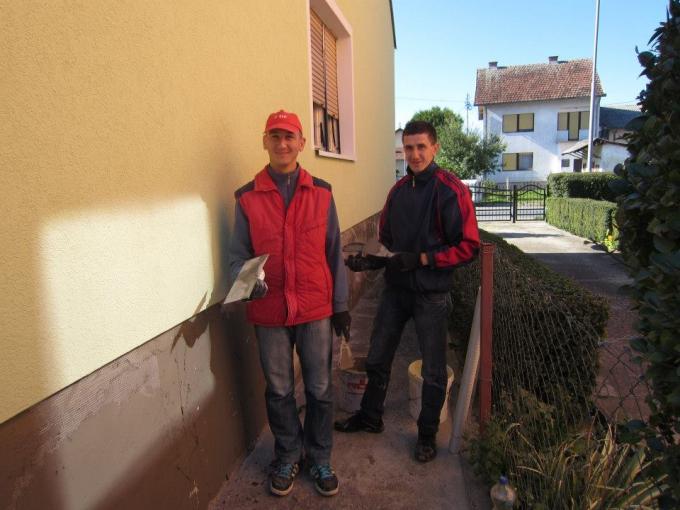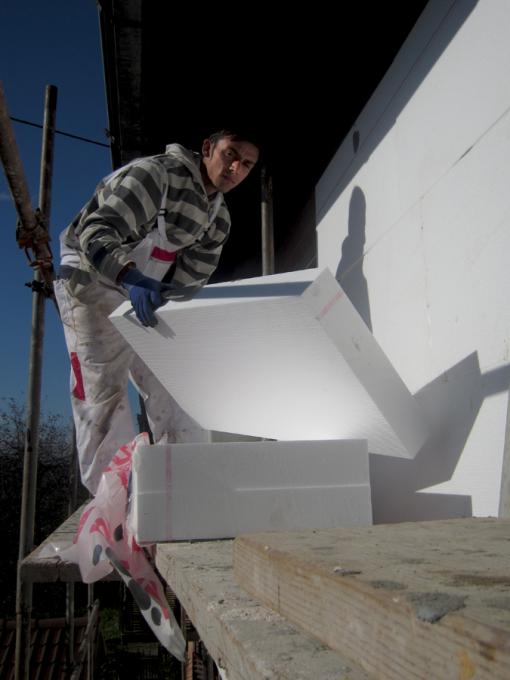 North West Balkans
North West Balkans
Languages
More than 70 unemployed young people from Republika Srpska attend vocational training programs
After completing primary school, twenty two years old twin brothers from Laktaši Predrag and Nenad Bavarcic had to make a hard decision not to continue with their education due to difficult financial situation. Without any qualifications or regular income, they now struggle to feed their mother and aunt with whom they live through occasional cargo loading and construction work.

They were overjoyed after last month's invitation from the Social Welfare Centre of their home town to participate in a three-month free of charge vocational training program for house painting. If successfully completed, the course will be registered in their work documents and potentially provide them employment in this profession. "We can do something with this, we can achieve something in life," says Predrag.
To attend the course, two brothers take a bus every day to travel some thirty kilometers to Gradiška, a small city in northern part of the country where classes take place. Happy to learn new skills, twenty-two years old Goran Vasiljevic from village of Slatina travels the same route, eager to make the best use of every day, learn as much as he can and become a trained certified house painter. Goran says it is very important for him to get practical knowledge that will help him to gain a first real job in his life: "This is really great and very useful, this will really work for me."

Predrag, Nenad and Goran are three of total of 72 young people from socially vulnerable groups of young people in Bosnia and Herzegovina (B-H) who, with financial support from Save the Children, will be trained to work in professions that are sought after at the B-H labor market through vocational training programs developed under the Law on Education of Adults of Republika Srpska (RS).
By the end of this year, young participants of the program for plastering, baking, plumbing and construction machinery operating from predominantly rural areas of Laktasi, Bijeljina, Zvornik, Ugljevik, Lopare, Gradiska, Kozarska Dubica and Srbac will acquire necessary knowledge and skills through vocational training programs that are based on practical work. These training programs are developed by the Institute for Education of Adults of RS and implemented by accredited training organizers from Gradiska and Bijeljina. "Our labor market is in need for these occupations," says Bojan Bajic, the Head of Institute's General Affairs Department stressing out that these programs are developed and adopted in close consultations with business sector.
With the aim of empowering young people from RS and at the same time, responding to the economic trends, Save the Children in North West Balkans has, in collaboration with the Institute, created the project "Vocational education for youth in RS" which brings together young people from marginalized groups in need for relevant competences and employers in need for young competent work force. Education Program Manager in Save the Children Fatima Smajlovic says:" Young people are the ones that are the most affected by the transition process. Thus, Save the Children is actively working to increase opportunities for their equal participation in the labor market."
Unemployment among young people in B-H is almost 58 percent and it is the highest in South-Eastern Europe, while the number of unemployed persons, especially those with no or low educational qualifications, goes up on a monthly basis.